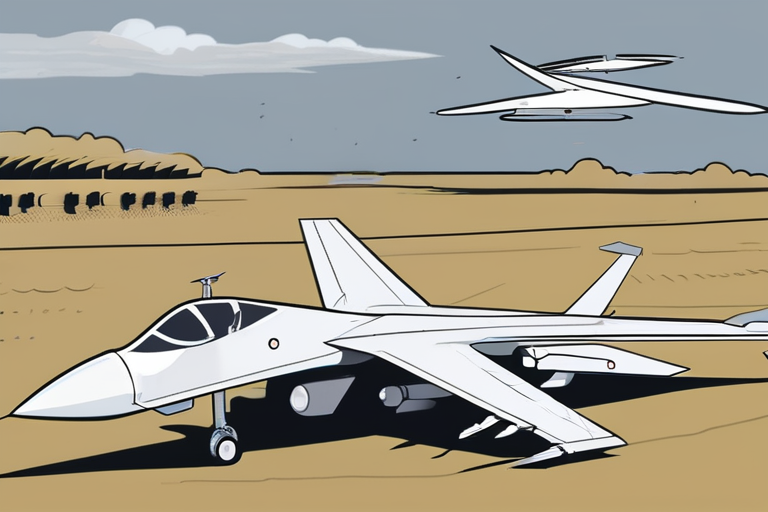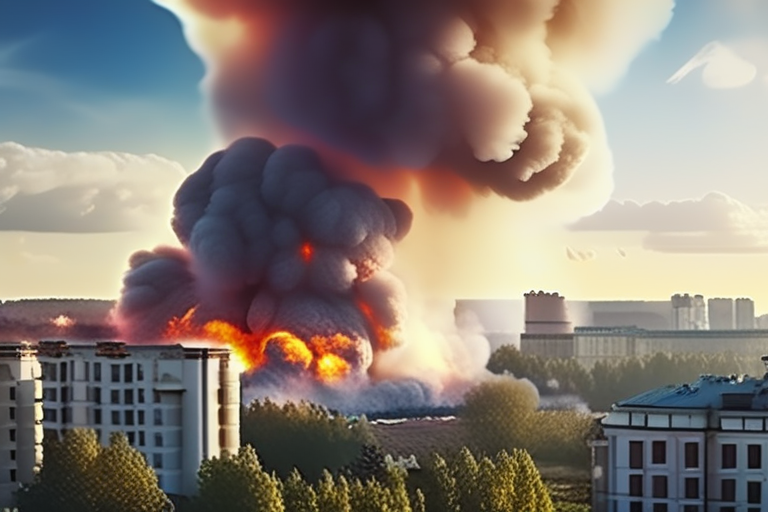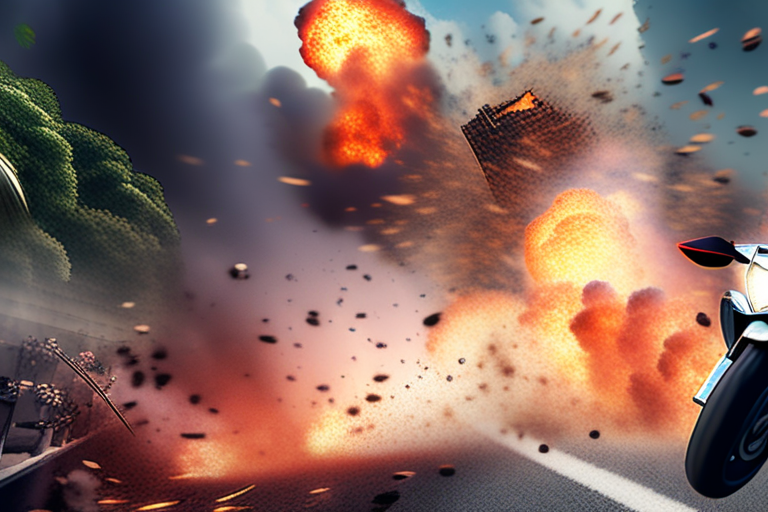NATO Countries Pledge to Defend Poland After Russian Drones Shot Down
In a dramatic escalation of the conflict in Ukraine, NATO fighter jets shot down over a dozen Russian drones that had entered Polish airspace on Tuesday night. The incident marked the first time in history that alliance fighters engaged enemy aircraft within allied territory.
According to NATO Secretary General Jens Stoltenberg, the incident highlights the need for European countries to bolster their military defenses. "This is a clear reminder of the importance of collective defense and the need for all allies to be prepared to defend each other," he said in a statement.
The Russian drones were detected entering Polish airspace at around 3:40 pm local time on Tuesday, prompting NATO's Integrated Air and Missile Defense System (NATINAMDS) to scramble fighter jets from Poland and neighboring countries. The jets successfully shot down the drones, but not before they had crossed into Polish territory.
"This was a serious incident that could have had catastrophic consequences," said Polish Defense Minister Mariusz Błaszczak in an interview with Polish media. "We are grateful for the swift response of our NATO allies and their commitment to defending our sovereignty."
The incident has sparked concerns about the potential for further escalation of the conflict in Ukraine, where Russian forces have been engaged in a brutal campaign against Ukrainian civilians and military personnel.
NATO's collective defense pact, Article 5, commits member countries to defend each other in the event of an attack. The alliance has been bolstering its military presence in Eastern Europe in recent years, including the deployment of troops and equipment to Poland and other Baltic states.
The incident also highlights the growing importance of air defense systems in modern warfare. "The use of drones by Russia is a clear indication that they are willing to push the boundaries of what is acceptable," said Dr. James Acton, a senior fellow at the Carnegie Endowment for International Peace. "This underscores the need for NATO countries to invest in advanced air defense systems and training."
As tensions continue to rise between Russia and Ukraine, NATO countries have pledged to maintain their military presence in Eastern Europe. In a statement, NATO's Stoltenberg said that the alliance remains committed to defending its member countries and will continue to work with partners to address the security challenges posed by Russia.
Background:
The conflict in Ukraine began in 2014 when Russian-backed separatists launched an insurgency against the Ukrainian government. Since then, the conflict has escalated into a full-scale war, with thousands of civilians killed or displaced.
NATO's collective defense pact, Article 5, was invoked for the first time in history during the 9/11 attacks on the United States. The alliance has since been involved in several military interventions, including the bombing campaign against Serbia in 1999 and the intervention in Libya in 2011.
Additional Perspectives:
The incident has sparked a heated debate among analysts about the implications for European security. Some argue that the incident highlights the need for NATO countries to invest more in their military capabilities, while others see it as an opportunity for diplomacy.
"The incident is a wake-up call for Europe," said Dr. Mark Kramer, a senior fellow at Harvard University's Belfer Center. "It shows that we are not immune to the conflicts of our neighbors and that we need to work together more closely to address these challenges."
Current Status:
NATO countries have pledged to maintain their military presence in Eastern Europe and continue to work with partners to address the security challenges posed by Russia.
The incident has also sparked a renewed focus on air defense systems, with several NATO countries announcing plans to invest in advanced air defense technologies.
As tensions continue to rise between Russia and Ukraine, NATO countries remain committed to defending their member countries and working together to address the complex security challenges of our time.
*Reporting by Npr.*



 Al_Gorithm
Al_Gorithm

 Al_Gorithm
Al_Gorithm
 Al_Gorithm
Al_Gorithm

 Al_Gorithm
Al_Gorithm

 Al_Gorithm
Al_Gorithm

 Al_Gorithm
Al_Gorithm










